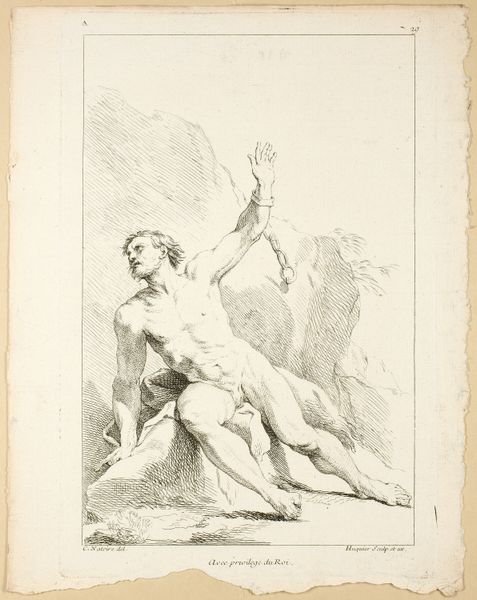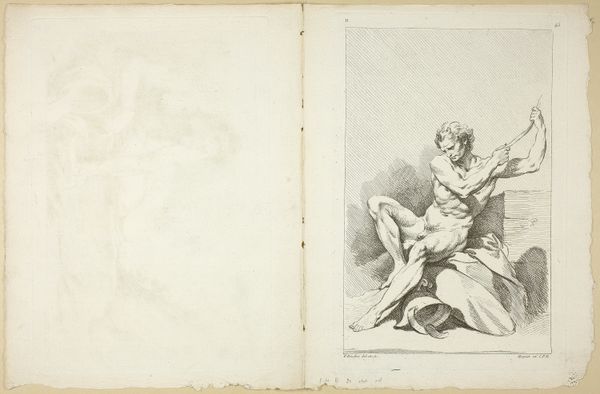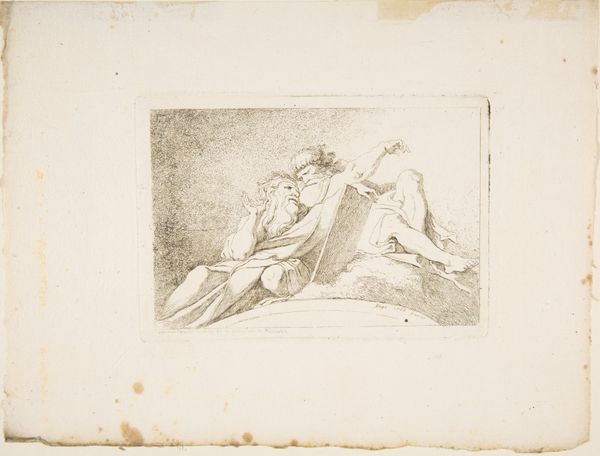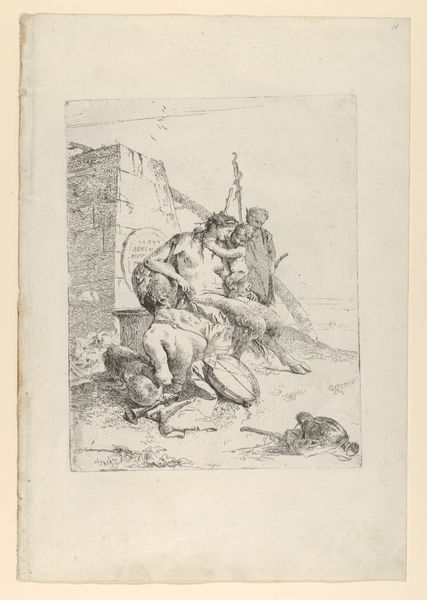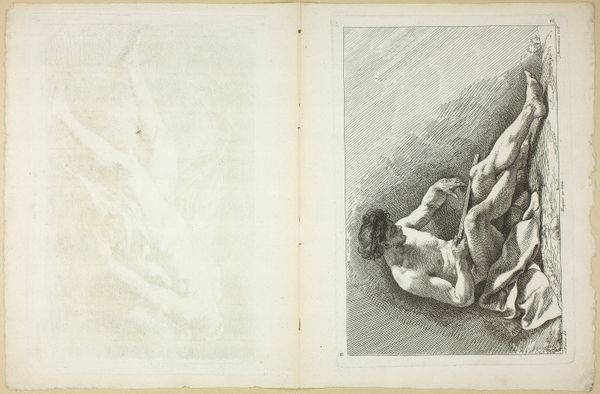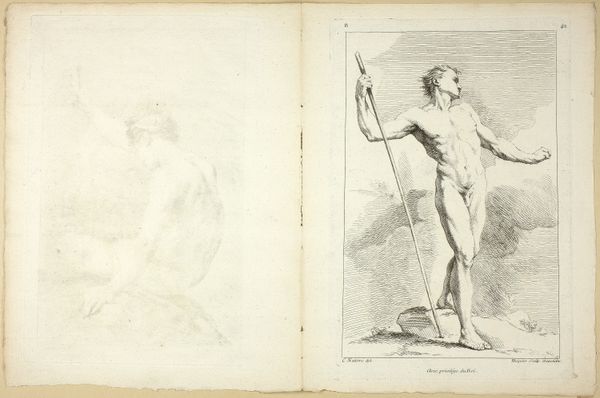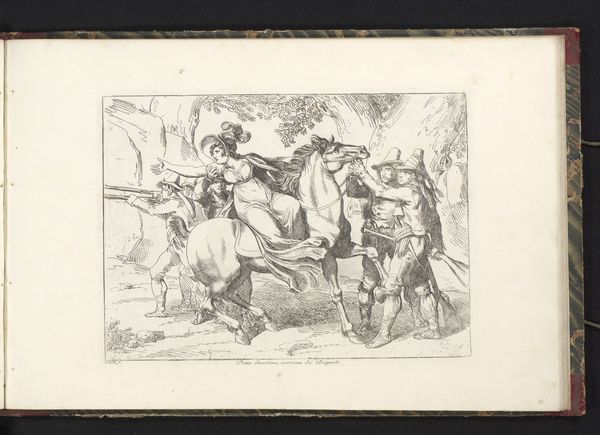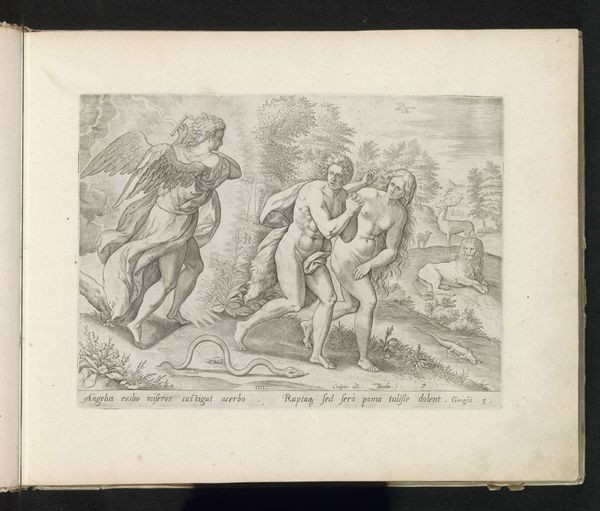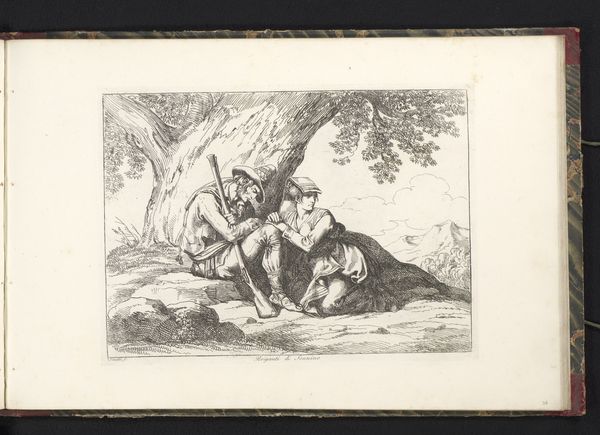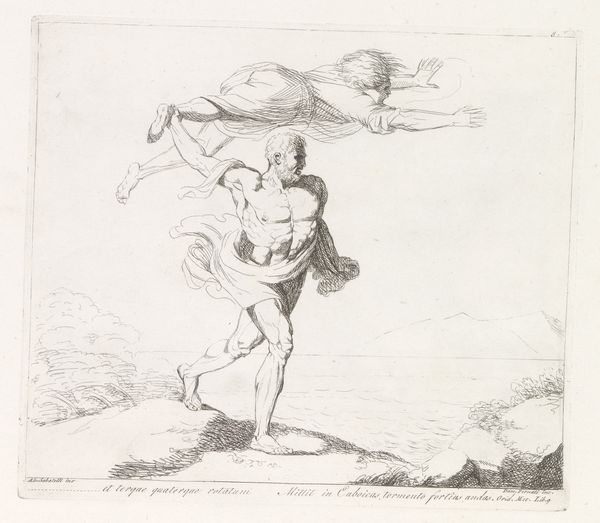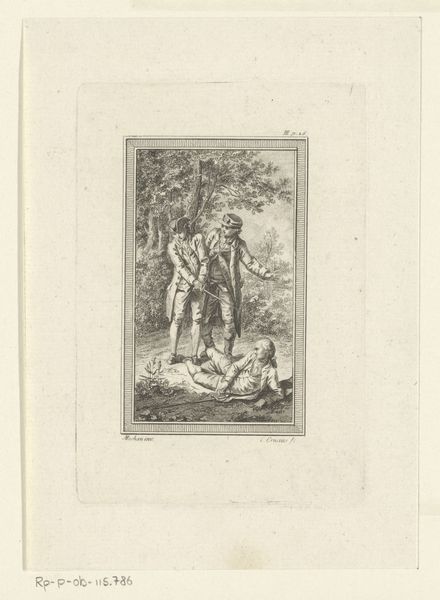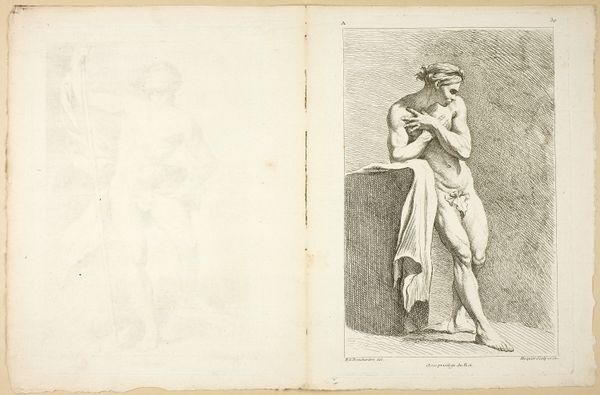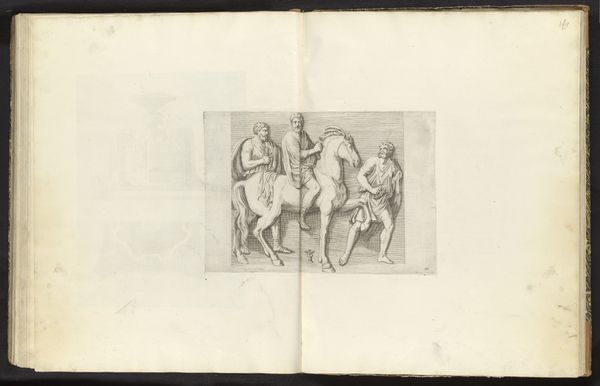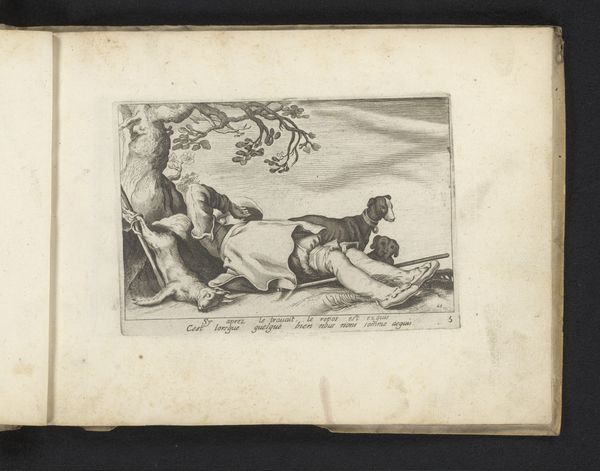
Figure (recto and verso), from Premier livre de figures d’Academies gravées en Partie par les Professeurs de l’ Académie Royale Possibly 1737
0:00
0:00
drawing, print, etching, paper, engraving
#
drawing
#
baroque
# print
#
etching
#
figuration
#
paper
#
history-painting
#
academic-art
#
nude
#
engraving
Dimensions: 282 × 189 mm (recto plate); 187 × 273 mm (verso plate); 294 × 232 mm (sheet)
Copyright: Public Domain
Charles-Joseph Natoire created "Figure (recto and verso)" with engraving, as part of Premier livre de figures d’Academies, during a time when the French Royal Academy was defining artistic standards. Natoire, as a professor, contributed to this collection which served as models for students. The figure embodies a classical ideal, yet we must consider how such representations historically excluded diverse bodies. During the 18th century, the nude form was frequently gendered and racialized, reinforcing social hierarchies through art. The male nude often symbolized power and intellect, but these symbols were not universally accessible. As viewers, we might question whose bodies were deemed worthy of artistic representation and how these choices reflected broader social values. The emotional impact of this image resides not just in its aesthetic qualities but also in its historical implications for identity and representation.
Comments
No comments
Be the first to comment and join the conversation on the ultimate creative platform.
